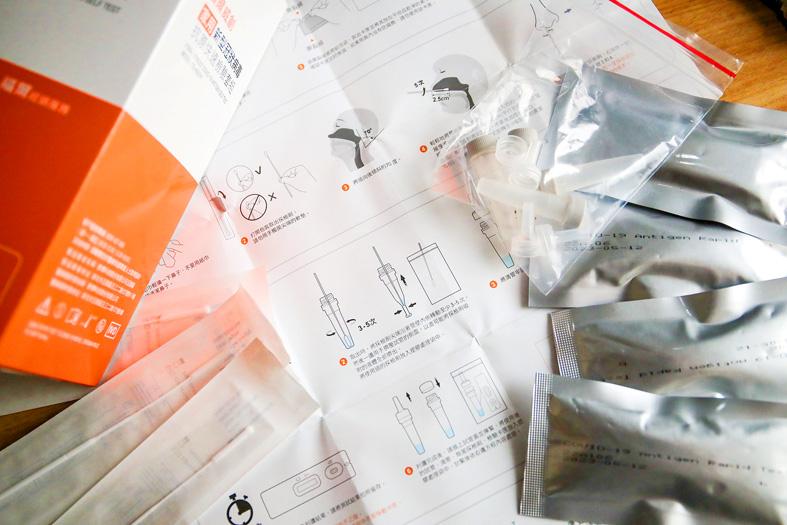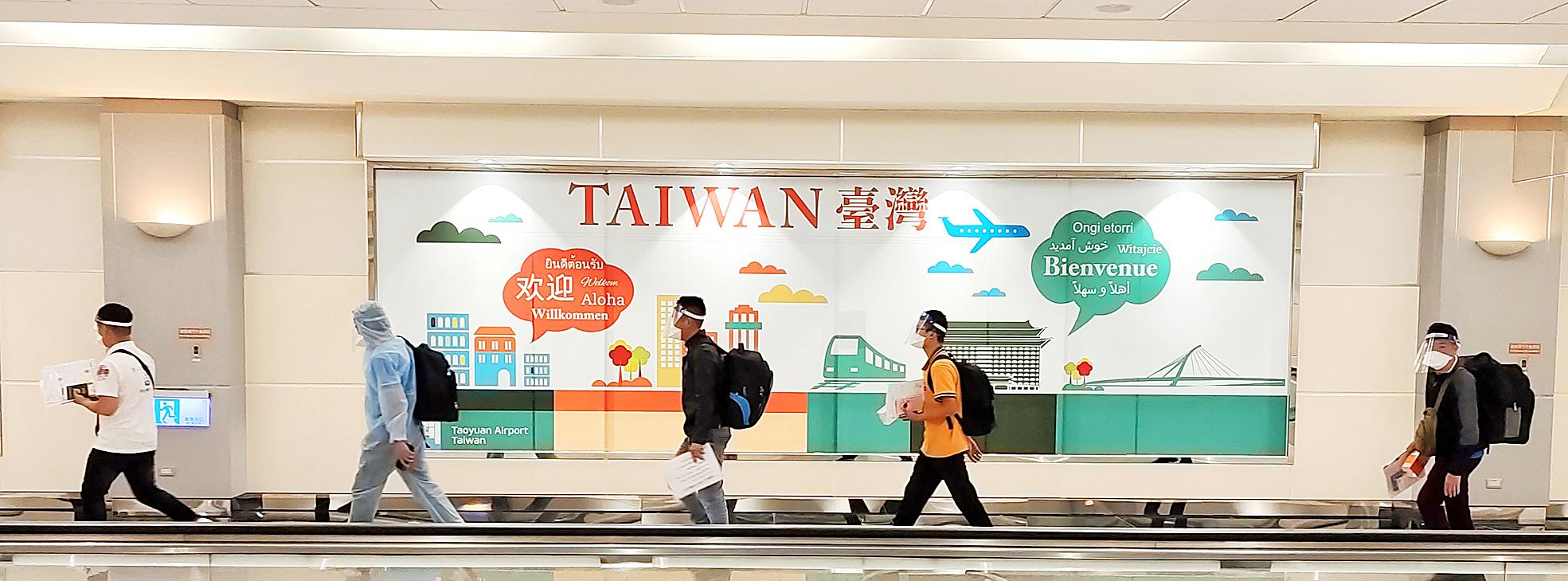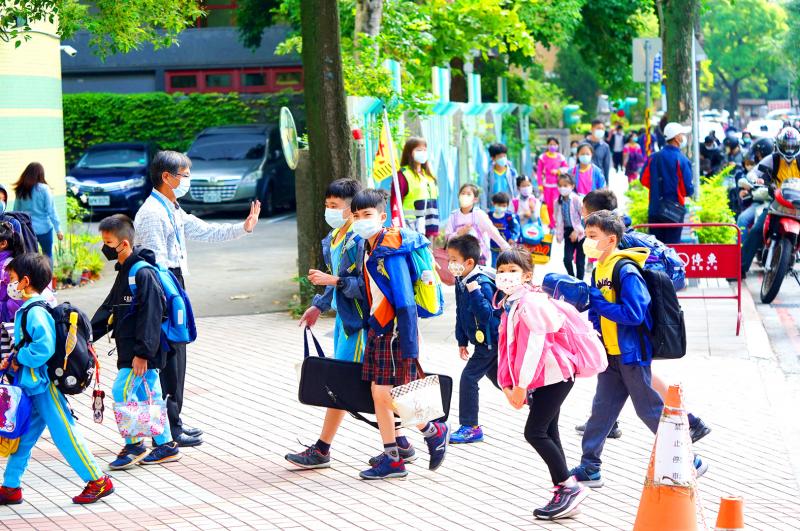Taiwan is to have a rationing scheme for rapid COVID-19 test kits similar to the one introduced for masks in February 2020, Minister of Health and Welfare Chen Shih-chung (陳時中) said yesterday.
Under the new rationing system, which is expected to begin early next month, every resident would be given a quota of five at-home test kits, Chen told a committee hearing at the Legislative Yuan.
Chen, who heads the Central Epidemic Command Center (CECC), said that over the next four months, the government would contract with local manufacturers to purchase about 31 million rapid test kits for the program.

Photo: CNA
At the same time, the government would also import 100 million test kits, Chen added.
A spike in domestic COVID-19 cases has created a shortage of rapid test kits at pharmacies and other authorized vendors.
Many have complained that rapid test kits are too expensive at nearly NT$300 apiece ----- about three times the price in other countries ----- and Chen said that kits in the rationing program would be priced at about NT$100 per unit.

Photo: Yao Chieh-hsiu, Liberty Times
The rationing plan would be similar to an earlier mask rationing program, Chen said.
Under that scheme, locals and resident foreign nationals received a quota of masks, which could then be purchased using a national health insurance card or another form of identification.
Similar to the mask scheme, no subsidies would be provided under the rationing scheme for rapid test kits, Chen said.

Photo: CNA
A report submitted to the Legislative Yuan by the Ministry of Health and Welfare said that the five local companies that make rapid test kits have a combined production capacity of 4.9 million test kits per month, but that they would work with the Ministry of Economic Affairs and the Ministry of National Defense to boost capacity to 12.8 million units by next month.
Output is expected to rise to 15.8 million units in the future, the report added.
Chen also told lawmakers that Taiwan could allow quarantine-free entry from July for travelers from countries with similar rates of COVID-19 infection.
If Taiwan and other countries have the same seven-day or 14-day infection rates, “there can be free travel,” Chen said when asked by Legislator Tsai Pi-ru (蔡壁如) if border controls might be eased by the start of summer vacation.
“But we’re not at that point yet,” Chen said, adding that, for example, the infection rate in Taiwan is much lower than in Japan or South Korea.
However, when pressed by Tsai, Chen said “yes,” referring to the easing of border controls by July.
“The pandemic is easing in many parts of the world and in Taiwan, the situation is becoming more severe. By July, we could be in a similar position to other countries,” he said.
When that time comes, Taiwan would set entry standards based on a country’s virus situation over the previous seven or 14 days, while maintaining restrictions for locations with a greater risk of infection, Chen said.
Places where the virus situation is mild “might not be so eager to allow in Taiwanese travelers,” Chen said. “But it shouldn’t be a problem for us to welcome travelers from those countries.”
Chen’s remarks went further than he had gone a day earlier, when he confirmed that Taiwan would consider shortening the quarantine period for arriving travelers and the isolation period for people exposed to COVID-19, despite the rising number of local infections.
Speaking to reporters on Sunday, Chen estimated that Taiwan would see an overall infection rate of 15 to 16 percent, similar to Hong Kong or New Zealand, or more than 3 million confirmed cases.
Despite the trend, shorter quarantine and isolation periods “are definitely possible,” as long as the move is backed up by scientific data, Chen said, adding that some countries have moved to a seven-day quarantine, while others have opted for five days.

EUROPEAN TARGETS: The planned Munich center would support TSMC’s European customers to design high-performance, energy-efficient chips, an executive said Taiwan Semiconductor Manufacturing Co (TSMC, 台積電), the world’s largest contract chipmaker, yesterday said that it plans to launch a new research-and-development (R&D) center in Munich, Germany, next quarter to assist customers with chip design. TSMC Europe president Paul de Bot made the announcement during a technology symposium in Amsterdam on Tuesday, the chipmaker said. The new Munich center would be the firm’s first chip designing center in Europe, it said. The chipmaker has set up a major R&D center at its base of operations in Hsinchu and plans to create a new one in the US to provide services for major US customers,

The Ministry of Transportation and Communications yesterday said that it would redesign the written portion of the driver’s license exam to make it more rigorous. “We hope that the exam can assess drivers’ understanding of traffic rules, particularly those who take the driver’s license test for the first time. In the past, drivers only needed to cram a book of test questions to pass the written exam,” Minister of Transportation and Communications Chen Shih-kai (陳世凱) told a news conference at the Taoyuan Motor Vehicle Office. “In the future, they would not be able to pass the test unless they study traffic regulations

GAINING STEAM: The scheme initially failed to gather much attention, with only 188 cards issued in its first year, but gained popularity amid the COVID-19 pandemic Applications for the Employment Gold Card have increased in the past few years, with the card having been issued to a total of 13,191 people from 101 countries since its introduction in 2018, the National Development Council (NDC) said yesterday. Those who have received the card have included celebrities, such as former NBA star Dwight Howard and Australian-South Korean cheerleader Dahye Lee, the NDC said. The four-in-one Employment Gold Card combines a work permit, resident visa, Alien Resident Certificate (ARC) and re-entry permit. It was first introduced in February 2018 through the Act Governing Recruitment and Employment of Foreign Professionals (外國專業人才延攬及雇用法),

‘A SURVIVAL QUESTION’: US officials have been urging the opposition KMT and TPP not to block defense spending, especially the special defense budget, an official said The US plans to ramp up weapons sales to Taiwan to a level exceeding US President Donald Trump’s first term as part of an effort to deter China as it intensifies military pressure on the nation, two US officials said on condition of anonymity. If US arms sales do accelerate, it could ease worries about the extent of Trump’s commitment to Taiwan. It would also add new friction to the tense US-China relationship. The officials said they expect US approvals for weapons sales to Taiwan over the next four years to surpass those in Trump’s first term, with one of them saying